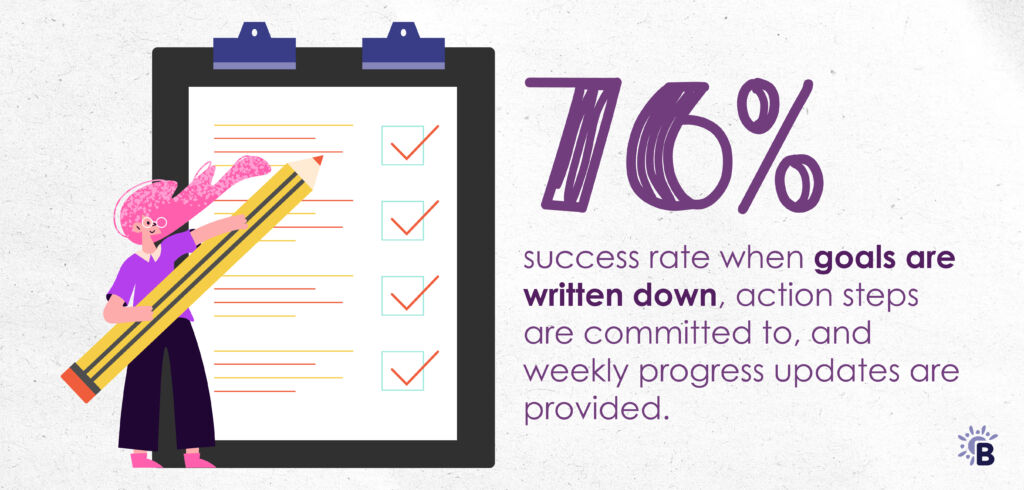
Stress Management Techniques for Autoimmune Relief
Did you know that stress plays a significant role as a potential trigger for autoimmune diseases? A Harvard Health study found a higher incidence of autoimmune diseases among people previously diagnosed with stress-related disorders.

Physiologically, stress-triggered neuroendocrine hormones can disrupt the immune system, potentially leading to autoimmune diseases.
Persistent stress can also alter gut microbiota, increasing effector T helper cells involved in autoimmunity. This highlights the critical link between stress and autoimmunity, where each can exacerbate the other.
Chronic stress makes these symptoms worse and triggers flare-ups, creating a cycle where stress and disease feed into each other.
Moreover, studies show that stress-related disorders, like PTSD and adjustment disorders, increase the risk of developing autoimmune diseases. Stress hormones can disrupt the immune system, contributing to these conditions.
This evidence highlights the importance of stress management techniques for treating and preventing autoimmune diseases as managing stress can reduce flare-ups and improve overall quality of life.
Mindfulness and Meditation Techniques
Managing stress is crucial for those with autoimmune diseases, and mindfulness and meditation techniques offer effective ways to do this. Here’s how:
By incorporating these techniques, individuals with autoimmune diseases can better manage stress levels, reduce symptoms, and improve their overall quality of life.
Yoga and Gentle Exercises
Incorporating yoga and gentle exercises into your routine can be another effective stress management technique for those with autoimmune diseases. These practices help alleviate tension, reduce inflammation, and promote overall well-being.
Gentle Yoga Poses
Certain yoga poses can significantly reduce tension and stress. Here are a few:
- Child’s Pose: This pose gently stretches the back, hips, and thighs. It helps relax the mind and reduce stress.
- Cat-Cow Stretch: This movement warms up the spine and relieves tension in the neck and back. It also helps improve flexibility.
- Gentle Twists: Twisting poses can help release tension in the spine and improve digestion. They also promote relaxation and stress relief.

Restorative Yoga
Restorative yoga focuses on relaxing and rejuvenating the body. Here are some beneficial poses:
- Supported Bridge Pose: This pose gently stretches the chest, neck, and spine while reducing stress and calming the mind. It also helps reduce inflammation.
- Legs Up the Wall: This pose improves circulation, reduces swelling, and promotes relaxation. It can be especially helpful for reducing inflammation and relieving tired legs.

Mindful Movement
Practicing yoga with mindful awareness enhances its stress-relieving benefits. Mindful movement means focusing on each breath and movement, staying present, and tuning into your body’s sensations. This approach not only helps reduce stress but also fosters a deeper connection between mind and body, promoting overall well-being.
Not too long ago, our community hosted the delightful Jess Reidy of mellowmoves.online who shared with us how movement can help us go through all of life’s ebbs and flows as well as its restorative impact on our autoimmune healing.
Join BrightlyThrive™ to access the replay of this Fireside Chat among many other supportive resources right at your fingertips!

Deep Breathing Exercises
Incorporating deep breathing exercises into your daily routine can be one of the most effective stress management techniques for those with autoimmune diseases. These practices help calm the nervous system, reduce stress hormones, and promote overall relaxation.
Diaphragmatic Breathing
Diaphragmatic breathing, also known as belly breathing, involves deep, even breaths that engage the diaphragm. Here’s a step-by-step guide:
- Find a Comfortable Position: Sit or lie down in a comfortable position with your shoulders relaxed.
- Place Your Hands: Place one hand on your chest and the other on your belly.
- Inhale Deeply: Take a slow, deep breath in through your nose, allowing your belly to rise while keeping your chest still.
- Exhale Slowly: Breathe out slowly through your mouth, letting your belly fall.
- Repeat: Continue this process for 5-10 minutes, focusing on the rise and fall of your belly.
Here’s a short demonstration:
Diaphragmatic breathing helps reduce stress by lowering heart rate and blood pressure. It also improves oxygen flow, which can enhance overall well-being and reduce inflammation.
Alternate Nostril Breathing
Alternate nostril breathing is another effective deep breathing exercise that calms the nervous system. Here’s how to do it:
- Sit Comfortably: Sit in a comfortable position with your spine straight.
- Use Your Right Hand: Use your right thumb to close your right nostril.
- Inhale: Inhale deeply through your left nostril.
- Switch Sides: Close your left nostril with your right ring finger, then release your right nostril.
- Exhale: Exhale slowly through your right nostril.
- Repeat on the Other Side: Inhale through your right nostril, close it, and then exhale through your left nostril.
- Continue: Repeat this cycle for 5-10 minutes, focusing on your breath.
Alternate nostril breathing balances the left and right hemispheres of the brain, reduces anxiety, and promotes mental clarity. This technique is especially helpful for calming the mind and reducing stress-induced symptoms.
Try it out and follow along here:
By incorporating these deep breathing exercises as part of your stress management techniques, you can effectively calm your nervous system, reduce stress, and improve your overall health. These simple practices can make a significant difference in managing autoimmune conditions and enhancing quality of life.
Planning and Organization
Effective planning and organization are essential stress management techniques. By organizing tasks, meals, and appointments, you can significantly reduce daily stress.

Daily Planning
Start by creating a daily plan that outlines your tasks, meals, and appointments.
Breaking down your day into manageable chunks helps prevent overwhelm and ensures you stay on track.
Prioritize tasks based on importance and deadlines, and don’t forget to schedule breaks to rest and recharge.
Planning meals ahead of time can also alleviate the stress of deciding what and where to eat and ensure you maintain a balanced diet to support your autoimmune we.
Use of Tools
Utilizing organizational tools can streamline your planning process.
Planners and calendars are excellent for visualizing your schedule and setting reminders.
Digital apps like Google Calendar, Trello, or Evernote can help you keep track of tasks and appointments on the go.
Set reminders for important events and deadlines to avoid last-minute stress.

Got a favorite organization tool/planner you love to use? Let us know in the comments! 🤩
Relaxation Techniques
Incorporating relaxation techniques into your daily routine is essential for managing stress, especially for those with autoimmune diseases. These are not just downtime activities but important practices for maintaining overall health and well-being. Here are some effective stress management techniques:
Scheduled Relaxation
- Importance of Scheduling Time: Make time for relaxation activities like soaking on a relaxing warm bath, reading, watching TV, or listening to music.
- Daily Routine: Incorporate these activities into your daily schedule to ensure regular breaks.
- Mental Breaks: Taking time to relax helps clear your mind and reduce stress levels.

Relaxation Therapies
- Massage: Regular massages can relieve muscle tension, improve circulation, and reduce stress.
- Aromatherapy: Using essential oils like lavender or chamomile can promote relaxation and reduce anxiety.
- Acupuncture: This traditional therapy can help balance the body’s energy, reduce stress, and alleviate pain.

By integrating these stress management techniques, you can significantly reduce stress and improve your overall well-being.
Healthy Lifestyle Habits
Incorporating small, consistent changes into your daily routine is key to effective stress management. We believe in discipline and commitment to one’s goals rather than overnight makeovers. Here are some essential habits:
Balanced Diet
- A nutritious diet supports overall health and helps manage stress.
- Eating plenty of fruits, vegetables, whole grains, and lean proteins provides the body with essential nutrients.
- These nutrients help stabilize mood, reduce inflammation, and boost energy levels.
Regular Exercise
- Gentle to moderate physical activity can significantly improve mood and reduce stress.
- Activities like walking, swimming, or gentle yoga release endorphins, which are natural stress relievers.
- Regular exercise also improves sleep quality and enhances overall well-being.
Adequate Sleep
- Getting 7-8 hours of restful sleep is crucial for managing stress and autoimmune symptoms.
- Good sleep helps the body repair and reduces inflammation.
- Establishing a regular sleep routine and creating a relaxing bedtime environment can improve sleep quality.
By focusing on a balanced diet, regular exercise, and adequate sleep, individuals with autoimmune diseases can effectively use stress management techniques to improve their quality of life and better manage their symptoms.
Stress is a part of life despite its harsh impact on our autoimmune health. But when we become aware of what’s causing us stress, we can take proactive steps to manage it more effectively. Download our FREE Stress Buster Worksheet to identify your stress triggers and apply effective stress management techniques.
Support Systems
Isolation and loneliness severely impact those with chronic illnesses and autoimmune conditions, worsening both mental and physical health.
Studies show loneliness is linked to higher depression and anxiety levels, especially in rheumatic disease patients. It also alters immune cells, increases inflammation, and impairs immunity, exacerbating autoimmune disorders.
Moreover, chronic loneliness can cause neuroendocrine dysregulation, leading to mental health issues and heightened inflammation. This creates a cycle where illness and isolation feed each other. Addressing loneliness is crucial for improving well-being in these individuals.
Building a strong support system is crucial for managing stress for these vulnerable groups. Here are some stress management techniques involving professional help and support groups:
Professional Help
- Seeking help from licensed counselors or therapists can provide personalized stress management strategies.
- Professionals can offer techniques tailored to your specific needs, helping you cope with the unique challenges of autoimmune diseases.
- Regular sessions with a counselor or therapist can reduce stress, improve mental health, and enhance overall well-being.
Support Groups
- Joining support groups provides a sense of belonging and shared understanding.
- Connecting with others who have similar experiences can offer emotional support and practical advice.
- Communities like ours at BrightlyThrive™ create a supportive environment where members can share their stories, learn from each other, and reduce feelings of isolation and its health effects.
Avoiding Stress Triggers
Awareness and addressing stress triggers are crucial for people with autoimmune conditions because it helps prevent flare-ups, manage symptoms more effectively, and enhance overall well-being.
Here are two effective stress management techniques that help you hold space for healing and the use of your energy positively:
1. Setting Boundaries
- Learn to Say No: Prioritizing your health means sometimes saying no to invitations or extra tasks.
- Recognize Limits: Understand your physical and emotional limits to avoid overwhelming situations.
- Communicate Needs: Be clear with friends and family about your need for rest and personal time.
By setting boundaries, you can manage your energy better and reduce stress, helping to prevent flare-ups.
2. Technology Detox
- Take Breaks from Screens: Constant exposure to screens can increase stress and mental fatigue.
- Schedule Tech-Free Time: Designate specific times each day to disconnect from phones, computers, and other devices.
- Engage in Offline Activities: Use this time to read, walk, or engage in hobbies that relax and rejuvenate you.
A technology detox helps clear your mind, reduce stress, and improve overall well-being.
If you’d like to incorporate stress management techniques from world-class autoimmune health coaches to your healing toolkit, join BrightlyThrive, The Autoimmunity Community™ today to learn more!
Conclusion
Managing stress is crucial for people with autoimmune diseases, as stress can worsen symptoms and trigger flare-ups.
Effective stress management techniques, such as mindfulness meditation, body scan meditation, and Yoga Nidra, help lower stress hormones and reduce inflammation.
Gentle yoga poses, like child’s pose and cat-cow stretch, also alleviate tension.
By incorporating these techniques into daily routines, people with autoimmune conditions can better manage symptoms, reduce flare-ups, support long-term health and improve their quality of life.
References
Sharif, K., Watad, A., Coplan, L., Lichtbroun, B., Krosser, A., Lichtbroun, M., Bragazzi, N. L., Amital, H., Afek, A., & Shoenfeld, Y. (2018). The role of stress in the mosaic of autoimmunity: An overlooked association. Autoimmunity Reviews, 17(10), 967–983. https://doi.org/10.1016/j.autrev.2018.04.005
Serraino, C., & Serraino, C. (2024, July 29). Stress & Autoimmune Disease: Navigating the Complex Relationship – Global Autoimmune Institute. Global Autoimmune Institute -. https://www.autoimmuneinstitute.org/articles/stress-autoimmune-disease-navigating-the-complex-relationship/
Sreenivas, S. (2024, March 8). Lupus: Stress Management Techniques to Control Flares. WebMD. https://www.webmd.com/lupus/stress-management-techniques-for-lupus
Stojanovich, L., & Marisavljevich, D. (2008). Stress as a trigger of autoimmune disease. Autoimmunity Reviews, 7(3), 209–213. https://doi.org/10.1016/j.autrev.2007.11.007
Song, H., Fang, F., Tomasson, G., Arnberg, F. K., Mataix-Cols, D., De La Cruz, L. F., Almqvist, C., Fall, K., & Valdimarsdóttir, U. A. (2018). Association of Stress-Related Disorders With Subsequent Autoimmune Disease. JAMA, 319(23), 2388. https://doi.org/10.1001/jama.2018.7028
Shmerling, R. H. (2020, October 27). Autoimmune disease and stress: Is there a link? Harvard Health. https://www.health.harvard.edu/blog/autoimmune-disease-and-stress-is-there-a-link-2018071114230
Moore, B. (2024, May 16). Guest Blog: A Major Health Crisis: The Alarming Rise of Autoimmune Disease – National Health Council. National Health Council. https://nationalhealthcouncil.org/blog/a-major-health-crisis-the-alarming-rise-of-autoimmune-disease/
Faresjo, M. (2015). The Link between Psychological Stress and Autoimmune Response in Children. Critical Reviews in Immunology, 35(2), 117–134. https://doi.org/10.1615/critrevimmunol.2015013255
Paddock, C. (2019, May 16). Could gut bacteria explain the link between stress and autoimmune disease? https://www.medicalnewstoday.com/articles/325193
TAGS:
CATEGORIES:






